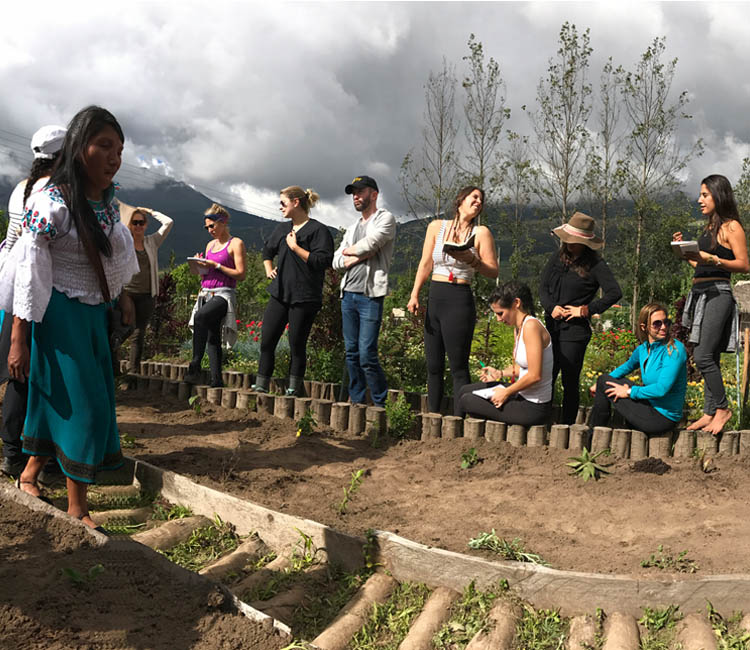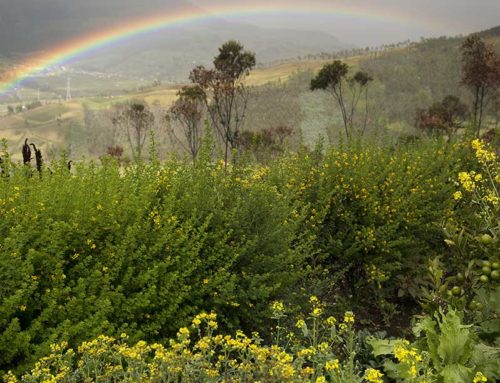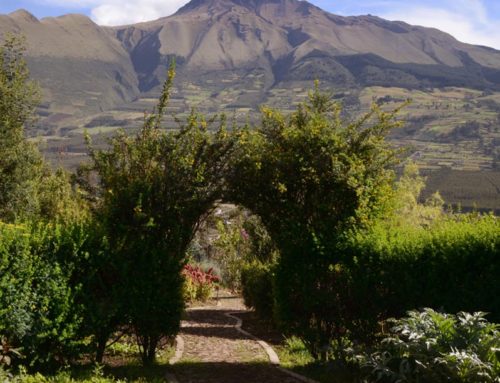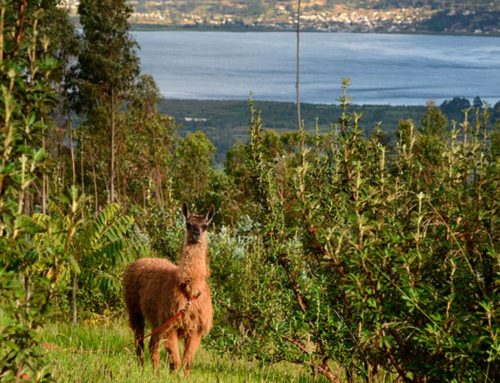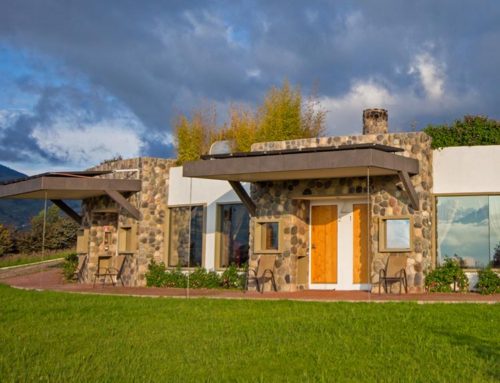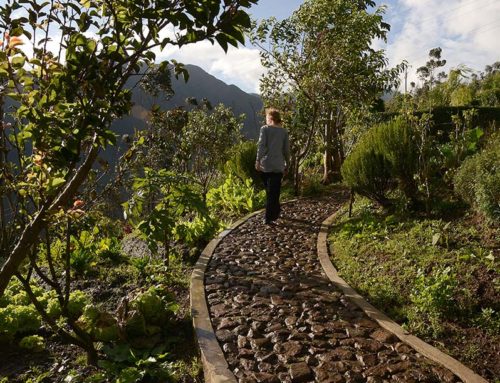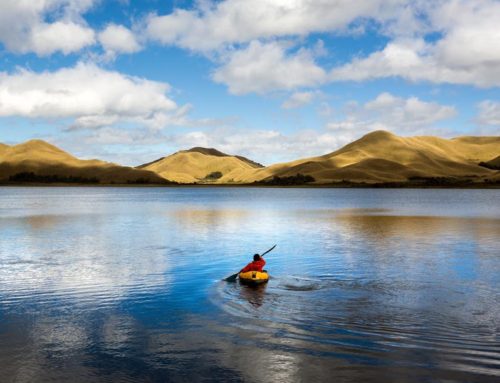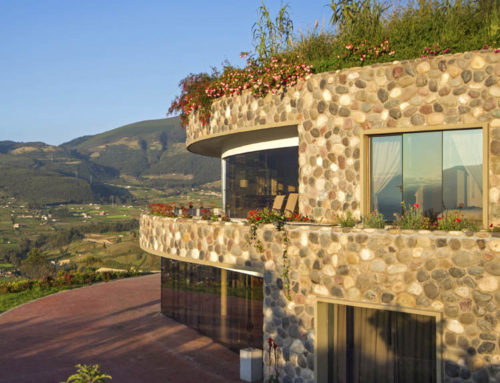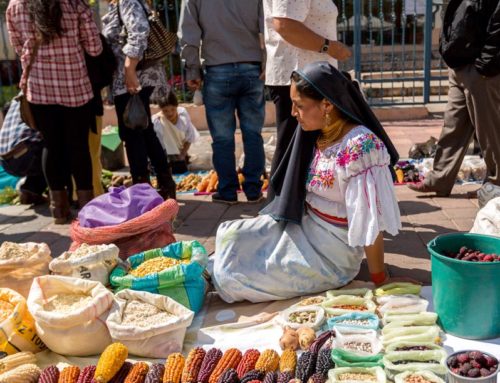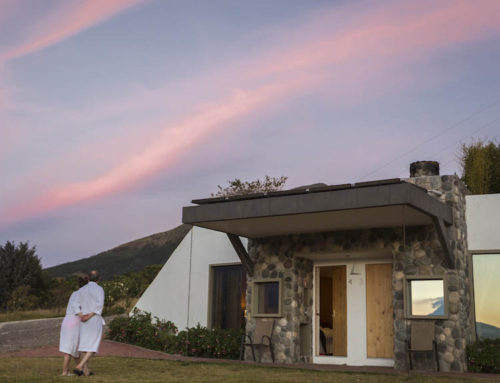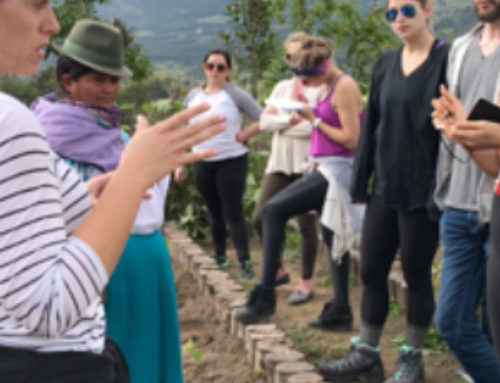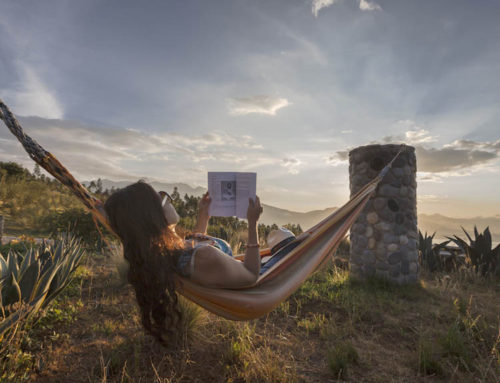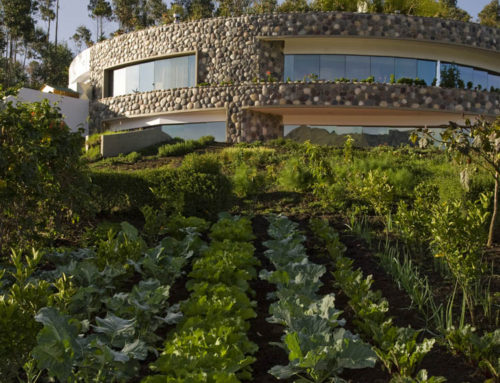Volunteering in Otavalo PART I
On a stretch of land overlooking the glistening San Pablo lake and the mysterious Imbabura volcano, an unlikely mix of people work together digging up earth. Adding to the riot of colour produced by the flowers are the vivid purples and blues of the skirts of Indigenous Andean women, elegant in their white blouses and neat trilby hats. Toiling alongside them are a smiling group of mainly North Americans clad in yoga pants, their bare feet grimy in the newly cleared earth.
This is My SachaJi’s first volunteering program with the Pachamama group, a medicinal herb garden project created by and for the women of the Angla community of the Ecuadorian Andes. Their long term aim is to create a garden large enough to produce herbs on an industrial scale for teas.
The volunteers are an eclectic group including two sets of mothers and daughters, from all over the United States, Canada, and Panama, each with different needs and intentions, brought together by yoga organization Seeds of Seva. They have come to offer their services in extending the gardens, while learning about the ancient secrets of traditional medicine and Andean culture.
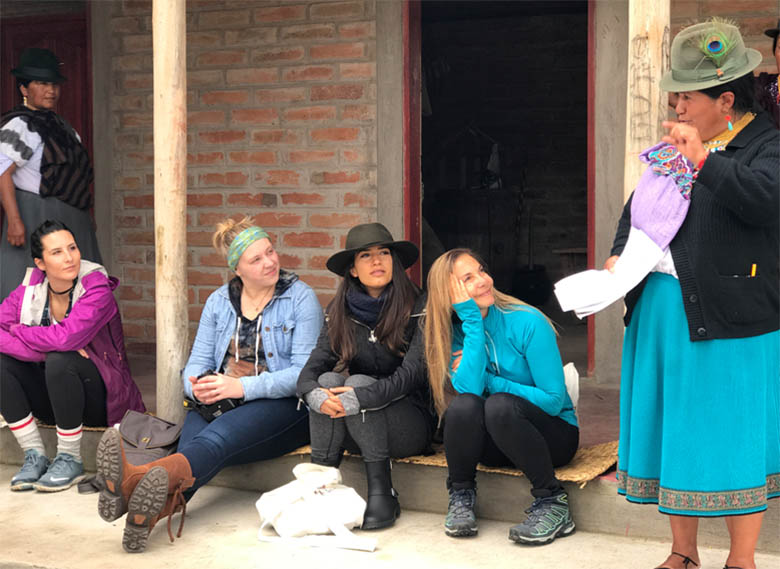
Why volunteer?
The idea behind Seeds of Seva, according to founder Dani Poyachefsky, is to combine yoga with cultural immersion and selfless service, to gain deeper awareness of one’s self and of the world around. The word “seva”, in fact, means “selfless service” in Sanskrit.
When planning the trip, 28-year-old Dani says, it was important to find an Indigenous group of people to work with, and stresses that the concept of community is fundamental not just to her group, but on a global scale.
“A community supports each other and allows each of its members to shine individually in their own space,” she explains. Maria Teresa Ponce, the owner and founder of My SachaJi, facilitated the connection with community of Angla, and provided the base for the group and facilities for their other activities.
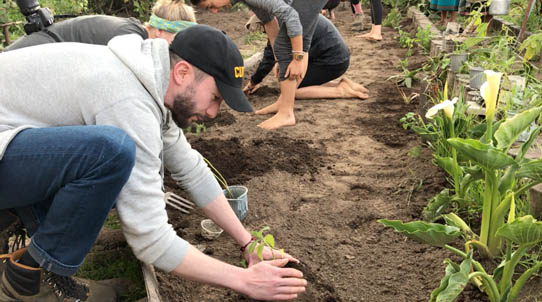
“I’ve felt a change physically, being grounded,” says one member, a resident of New York City.
“This has bonded everyone, working with the land and dirt,” another adds. Another, commenting on the local women of the community, says, “These women breath wisdom. They have this unforced connection to the earth, which comes from living with the earth.”
While working on the gardens forms the backbone of the program, there is also other work to be done. Some participants, one of the mothers and another who works as professional chef, help the Andean women make traditional snacks in the kitchen. Over an open fire, the women make quinoa patties laced with herbs and carrots. Neither speaks the other’s language, yet the operation is run with military efficiency.
By mid-afternoon, everyone is starving, and one by one they throw down their hoes and rakes to take a break. The local women hand out patties, devoured by the mud-caked volunteers sitting on the ground. A brief rainstorm forces people undercover and there’s more smiling, joking and hugging, as the women teach other songs, in Quechua and Sanskrit.



